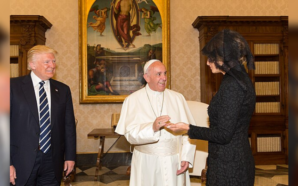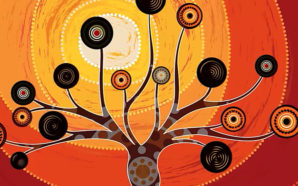Dear sisters and brothers,
The feast of Corpus Christi reminds us of our call to follow the way of Jesus, who came so that everyone might have a dignified life. We are called to be His body broken and His blood poured out for others. The Eucharist nourishes us with the life and love of God totally poured out in Christ so that we can love and serve one another as He commanded us. It strengthens us as we follow the way of Jesus in transforming lives and relationships and thus bringing about God’s plan for all humanity.
In the Exodus, Israel was called to a higher destiny which was to become the beacon of the new humanity. The miracle of manna did not simply satisfy their physical hunger. It was a sign that God acted outside Pharaoh’s monopoly and formed them into an alternative society. Israel was made to understand that they must pursue God’s covenant of mercy, justice and shared dignity rather than Pharaoh’s system of self-interest and greed.
The observance of Sabbath, Passover, the Decalogue etc., is not just a means for personal holiness. For the chosen people, it constitutes a kind of corporate resistance against the imperial paradigm of competition, dominion and zero-sum game. In other words, it forms them into a model society that witnesses to the God of love, hospitality, generosity and kindness.
Jesus declares that He is the new manna that nourishes and gives the fullness of life. “I am the living bread come down from heaven; and the bread that I shall give is my flesh for the life of the world”. Jesus anticipates the offering of Himself on the altar of the cross. Thus, Jesus links what happened in the past with what He would accomplish on Calvary. Manna in the desert foreshadows the real food of life that Jesus would give to us at the table of the Eucharist.
At the Last Supper, Jesus transforms the Jewish Passover meal. It is no longer just a celebration of freedom from bondage in Egypt. He Himself is the Passover Lamb, bringing about a new and greater exodus – leading us not to an earthly promised land, but to the reign of God’s justice and love. Hence, to participate in the Eucharist is to make present Jesus’ liberating and transforming power in our lives and relationships, especially those of the poor and the dispossessed.
To eat His flesh and to drink His blood is to participate in His life-giving death and resurrection. The Eucharist commits us to be Christ’s transforming presence in the world. For like Him, we must suffer with others, be vulnerable with the vulnerable, be last with the least and be powerless with those without power.
To eat His flesh and to drink His blood is not just a privilege. When we say “Amen” as we receive communion, we don’t simply shut ourselves from others. The “Amen” actually obliges us to be like Christ, becoming the body broken and the blood poured out for others. It is also a profound statement of commitment and solidarity with all who suffer throughout the world. This is not something we do alone, but as a community, in communion with Christ and with our brothers and sisters who form His body on earth.
We are challenged to reclaim our identity as Eucharistic people. St Augustine put it like this: “Receive what you already are and become fully what you have received”. Corpus Christi is to become what we eat, to be another Christ for others, to be Eucharistic in our self-giving love, in our reaching out and in our embrace of all people in the manner Jesus showed us. St John Chrysostom, a contemporary of St Augustine, shows the link between the Eucharist and love of others in this way: “If you cannot find Christ in the beggar at the Church door, you will not find Him in the chalice.” Indeed, communion with the poor is the pathway to God.
Corpus Christi highlights for us what it means to be a disciple and what it means to be a body of Christ. In a world which is deeply suspicious of institutional religions, we need to be purified of all that is the antithesis of the Gospel spirit. We need to convert to the humble and servant Christ. We give thanks for this gift of His body and blood. More importantly, we strive to imitate the self-giving nature of our God Himself.
As we celebrate and share the Eucharist, let us commit ourselves to the journey of transformation. May we grow daily into the Eucharistic Christ who reaches out to all people and leads them to the heart of God. May we model our lives on the one who came to all, so that we could have life and have it to the full.
This article was originally published in the 2024 Ordinary Time | Winter edition of the Catholic Outlook Magazine. You can read the digital version here or pick up a copy in your local parish.








